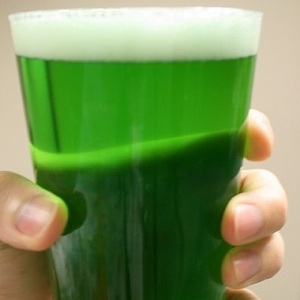Breweries turn to biodiesel in sustainability strategies

March 14, 2014
BY The National Biodiesel Board
Before you lift that green beer on St. Patrick’s Day, why not select one that comes from a “green” brewery? Many breweries throughout the U.S. and Canada have robust sustainability initiatives that include using biodiesel.
One example is a company whose flagship Pale Ale brew even has a green label: Sierra Nevada. Ranked as the second largest U.S. craft brewing company by the Brewers Association, Sierra Nevada has used a blend of up to 20 percent biodiesel (B20) for the past six years. Biodiesel blends fuel 15 long-haul and local delivery trucks for the Chico, Calif., company.
“At the brewery we’re always striving to essentially close the loop, and biodiesel helps us turn what could be a waste product into something useful,” said Ryan Arnold, Sierra Nevada communications manager. “The trucks perform well. With up to B20, we don’t see much change in mileage.”
The company grows eight acres of hops and has an onsite garden at its restaurant in Chico, where it also fuels tractors with biodiesel. Other suitability initiatives include diverting about 99.8 percent of its solid waste from the landfill and housing one of the largest privately owned solar arrays in the country.
Advertisement
Advertisement
In the green revolution taking place in the brewing industry, a sampling of other breweries using biodiesel includes:
-Red Lodge Ales in Red Lodge, Mont., has used biodiesel for almost 10 years in its small fleet of delivery vehicles. The company collects waste grease from its restaurant customers and trades it for finished fuel from a local supplier. Other efforts include a large solar thermal array that heats water, and a system that introduces outside air into a cold storage during the winter months, reducing refrigeration needs.
-New Belgium Brewing Company in Fort Collins, Colo., uses biodiesel made from recycled restaurant grease to fuel trucks and generators for its famous Tour de Fat, a philanthropic “bicycle, beer and bemusement” event that will travel to 10 cities this year. The company’s extensive sustainability program includes a 2008 lifecycle assessment of a 6-pack of Fat Tire, which helped the company have a broader understanding of the emissions associated with making and delivering beer. New Belgium has been steadily engineering dividers out of bottled beer packages over the past few years, resulting in an annual savings of roughly 417 tons of material.
Advertisement
Advertisement
-For an imported choice, Steam Whistle Brewing, a Toronto, Canada-based craft brewery has a commercial delivery fleet made up entirely of biodiesel-fueled Mack straight trucks and Isuzu Cabover trucks plus a newly added fully automatic Mack Truck trailer. Other greening efforts include recycling every element of its packaging line: cardboard cartons, broken glass, old bottle caps and even shrink wrap are compacted in the bottle shop to be recycled into new packaging materials.
-Stone Brewing Co. has been brewing in North County San Diego since 1996. The 10th largest craft brewer in the U.S., Stone owns two eclectic farm-to-table restaurants and Stone Farms, which grows produce for the restaurants. Stone Distributing Co. distributes more than 30 craft beer brands throughout Southern California. The company has a fleet of 40 box trucks, one hybrid truck, two Sprinter vans and four single axel daycabs that all use B20. Stone’s other initiatives include sending spent grain from the brewing process to local dairy farmers to use as animal feed, or as mulch in the gardens.
“The greening movement spreading through the brewing industry for years has a positive impact on other industries that follow their lead,” said Don Scott, the National Biodiesel Board’s director of sustainability. “It’s great to see biodiesel playing a key role in their strategies. As America’s first advanced biofuel, with a greenhouse gas reduction of up to 86 percent, biodiesel is the best choice a fleet can make to reduce its carbon footprint.”
Biodiesel is a renewable fuel for diesel engines made from a diverse mix of sustainable resources like recycled cooking oil, soybean oil, and animal fats. It is the first and only EPA-designated advanced biofuel being produced on a commercial scale across the country.
Related Stories
Global digital shipbuilder Incat Crowther announced on June 11 the company has been commissioned by Los Angeles operator Catalina Express to design a new low-emission, renewable diesel-powered passenger ferry.
ATR and French SAF aggregator ATOBA Energy on June 19 signed a memorandum of understanding (MOU) to explore ways to facilitate and accelerate sustainable aviation fuel (SAF) adoption for ATR operators.
Argent Fuels, a leading provider of carbon-saving fuels in the UK, is accelerating its efforts to support a greener future. The expansion of its High Blend Biodiesel will supply to bus, coach, HGV fleets and rail in the south of the UK.
Sprague Operating Resources LLC on June 24 announced it has been selected by the New York City Department of Citywide Administrative Services to supply renewable diesel for its marine fleet, including the iconic Staten Island Ferry.
On June 17, the NYC Department of Citywide Administrative Services and the Department of Transportation announced the start of the Staten Island Ferry’s transition to renewable diesel, marked by the delivery of the first barge of fuel.
Upcoming Events










